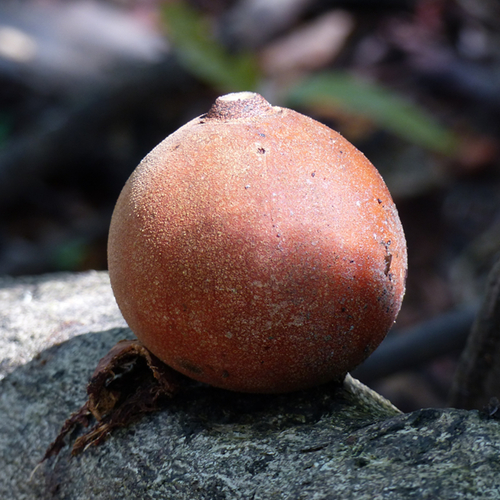
Salacia
Scientific names: Salacia oblonga, Salacia reticulata
Family: Celastraceae/Hippocrateaceae
Alternate names: Chundan, Kothala Himbutu, Ponkoranti, SO, S. oblonga
Actions: Antibacterial, Antidiabetic, Anti-inflammatory, Antimalarial, Antineoplastic, Antioxidant, Antiparasitic, Cardiovascular, Hepatic, Lipid, Metabolic, Weight loss
Background
Salacia is an herb that is native to India and Sri Lanka. The root and stem are used to make medicine.
Salacia is used for diabetes, asthma, joint pain, weight loss, and other conditions, but there is no good scientific evidence to support these uses.
Mugs made from salacia wood are used by people with diabetes to drink water.
Salacia is used for diabetes, asthma, joint pain, weight loss, and other conditions, but there is no good scientific evidence to support these uses.
Mugs made from salacia wood are used by people with diabetes to drink water.
Safety Safety definitions
When taken by mouth: Salacia is POSSIBLY SAFE when taken for up to 6 weeks. There isn't enough reliable information to know if salacia is safe when used for longer periods of time. Salacia can cause uncomfortable side effects such as gas, belching, pain in the abdomen, nausea, and diarrhea in some people.
Diabetes: Salacia can decrease blood sugar levels. Your diabetes medications might need to be adjusted by your healthcare provider.
Surgery: Salacia might lower blood sugar levels. There is some concern that it might interfere with blood sugar control during and after surgery. Stop using salacia at least 2 weeks before a scheduled surgery.
Special Precautions & Warnings:
Pregnancy and breast-feeding: There isn't enough reliable information to know if salacia is safe to use when pregnant or breast-feeding. Stay on the safe side and avoid use.Diabetes: Salacia can decrease blood sugar levels. Your diabetes medications might need to be adjusted by your healthcare provider.
Surgery: Salacia might lower blood sugar levels. There is some concern that it might interfere with blood sugar control during and after surgery. Stop using salacia at least 2 weeks before a scheduled surgery.
Effectiveness
NatMed Pro rates effectiveness based on scientific evidence according to the following scale: Effective, Likely Effective, Possibly Effective, Possibly Ineffective, Likely Ineffective, Ineffective, and Insufficient Evidence to Rate.
Possibly effective Effectiveness definitions
- Diabetes. Early research shows that drinking salacia tea with each meal might lower glycated hemoglobin (HbA1C) levels in people with type 2 diabetes. Other early research shows that taking salacia with food for 6 weeks might reduce blood sugar and HbA1C levels in patients with type 2 diabetes.
Insufficient evidence Effectiveness definitions
- Itching skin.
- Gonorrhea.
- Joint problems.
- Asthma.
- Losing weight.
- Other conditions.
Dosing & administration
The appropriate dose of salacia depends on several factors such as the user's age, health, and several other conditions. At this time there is not enough scientific information to determine an appropriate range of doses for salacia. Keep in mind that natural products are not always necessarily safe and dosages can be important. Be sure to follow relevant directions on product labels and consult your pharmacist or physician or other healthcare professional before using.
Interactions with pharmaceuticals
Medications for diabetes (Antidiabetes drugs)
Interaction Rating=Moderate Be cautious with this combination.
Salacia might decrease blood sugar. Diabetes medications are also used to lower blood sugar. Taking salacia along with diabetes medications might cause your blood sugar to go too low. Monitor your blood sugar closely. The dose of your diabetes medication might need to be changed.
Some medications used for diabetes include glimepiride (Amaryl), glyburide (DiaBeta, Glynase PresTab, Micronase), insulin, pioglitazone (Actos), rosiglitazone (Avandia), chlorpropamide (Diabinese), glipizide (Glucotrol), tolbutamide (Orinase), and others.
Interactions with herbs & supplements
Herbs and supplements that might lower blood sugar: Salacia might lower blood sugar levels. Taking it along with other herbs that lower blood sugar might lower blood sugar too much. Herbs that might lower blood sugar include devil's claw, fenugreek, garlic, guar gum, horse chestnut, Panax ginseng, psyllium, and Siberian ginseng.
Interactions with foods
There are no known interactions with foods.
Action
Chemicals in salacia seem to prevent sugars in food from being absorbed by the body.
vital.ly has licensed monographs from TRC Healthcare.
This monograph was last reviewed on 17/10/2023 11:00:00 and last updated on 07/11/2014 16:57:32. Monographs are reviewed and/or updated multiple times per month and at least once per year.
Natural Medicines disclaims any responsibility related to medical consequences of using any medical product. Effort is made to ensure that the information contained in this monograph is accurate at the time it was published. Consumers and medical professionals who consult this monograph are cautioned that any medical or product related decision is the sole responsibility of the consumer and/or the health care professional. A legal License Agreement sets limitations on downloading, storing, or printing content from this Database. No reproduction of this monograph or any content from this Database is permitted without written permission from the publisher. It is unlawful to download, store, or distribute content from this site.




